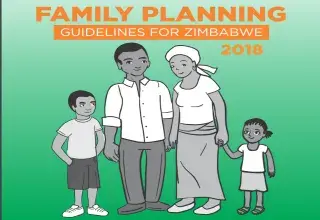Harare, Zimbabwe, 20 July, 2018 – Youth friendly services are key to young people’s uptake of essential health services such as family planning, according to health experts who recently attended a capacity building workshop on how best to support young people’s Sexual and Reproductive health needs.
The experts were speaking at a capacity building workshop for local pharmacists on the provision of youth friendly services for adolescents requiring family planning services and information. The workshop was organized by UNFPA, the lead organization on reproductive health and rights and its partners, the Ministry of Health and Child Care (MoHCC) and the Zimbabwe National Family Planning Council (ZNFPC)
Issues of young’s people’s access to SRH services is an issue of global concern. In 2017 the World Health Organisation (WHO) reported that 16 million adolescents aged 15-19 give birth each year, mostly in low and middle-income countries. Approximately 1 in 10 adolescent girls give birth every year between the age 15-19 years according to the Zimbabwe Demographic Health Survey (2015). Pregnancy and childbirth related complications are the number-one killers of girls aged 15 to 19. Early or mis-timed pregnancies may result in maternal morbidities and mortality. The availability of youth friendly services and information could make a huge difference in the lives of many of these young people and help them manage their reproductive lives, according to research.
Access to Contraception, for example, helps prevent adolescent pregnancy, thus helps keep girls in school to build their life skills which eventually open up opportunities later in life for the girls to join the paid labour force.
According to the 2015 Zimbabwe Demographic and Health Survey (2015 ZDHS), it is estimated that in Zimbabwe about 51% of young people (15-19 years) access their contraceptives from private pharmacies The pharmacists are concerned with the high use of emergency contraceptives by the young people with little or no counselling given in the pharmacies. Emergency Contraceptives consumed are mainly sourced from private pharmacies. There is need therefore to equip pharmacists with skills on on how to respond to young people’s needs.
MoHCC’s Pharmacy Logistics and Research Officer, Witness Hussain speaking at the training workshop jointly organized by UNFPA, MoHCC and ZNFPC said the training of pharmacists is essential as contraception and family planning methods are not covered during their pharmaceutical studies.
“Pharmacists have a knowledge gap on contraceptive use since their university curriculum does not cover contraception. To enable pharmacists, serve adolescents seeking contraception services better, the training for pharmacists was necessary,” Hussain said.
Several pharmacists attending the training said they had noted a lack of knowledge on contraceptives amongst most adolescents leading to an upsurge in the use of emergency contraceptives.
According to Luckmore Bunu from the Retail Pharmacists Association, adolescents ‘pretend’ to know about family planning due to their access to the internet and do not seek further information on the available contraceptive options. Bunu says there is a lot of confidence exhibited, however, further probing by pharmacists reveals insecurities and misinformation.
Harare based pharmacist, Nomusa Yehudah says adolescents may not know where to obtain contraception or cannot afford services, yet even when there is easy access, uptake may be constrained by stigma around non-marital sexual activity, pressures to demonstrate fertility and overall lack of agency to make choices.
“Incorrect use and failure to use contraceptives consistently is also higher among adolescents. While efforts using popular approaches such as youth centers or peer education programs to promote adolescent contraceptive use are still widely implemented, there has been little impact in shifting behaviours towards effective contraceptive uptake,” she says.
What should be done to increase correct and consistent contraceptive use by adolescents?
According to ZNFPC, pharmacists are a key stakeholder that cannot be left behind in promoting contraceptive uptake by adolescents. ZNFPC Adolescents Sexual and Reproductive Health Programme Officer, Helen Machimbirike says pharmacists are a very important service provider as they constitute 22% in the distribution of family planning commodities.
“We have to engage them because some adolescents fear going to public healthcare facilities and would rather go to pharmacies. It is therefore important to orient pharmacists on the provision of youth friendly services to encourage young people to correctly use contraceptives,” Machimbirike says.
The pharmacists at the training workshop there agreed that there is need to have counselling sessions with young people when they purchase contraceptives.
What is the way forward?
The training in Harare was the first of several pharmacists’ training aimed at equipping community/retail pharmacists with tools and competencies to provide adequate Family Planning services and counselling to young people who come for emergency contraceptives in their pharmacies.




